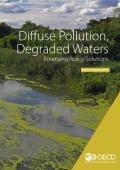
After decades of regulation and investment to reduce point source water pollution, OECD countries still face water quality challenges (e.g. eutrophication) from diffuse agricultural and urban sources of pollution, i.e. pollution from surface runoff, soil filtration and atmospheric deposition. The relative lack of progress reflects the complexities of controlling multiple pollutants from multiple sources, their high spatial and temporal variability, the associated transactions costs, and limited political acceptability of regulatory measures.
The OECD report Diffuse Pollution, Degraded Waters: Emerging Policy Solutions (OECD, 2017) outlines the water quality challenges facing OECD countries today. It presents a range of policy instruments and innovative case studies of diffuse pollution control and concludes with an integrated policy framework to tackle this challenge. An optimal approach will likely entail a mix of policy interventions reflecting the basic OECD principles of water quality management – pollution prevention, treatment at source, the polluter pays and the beneficiary pays principles, equity, and policy coherence.
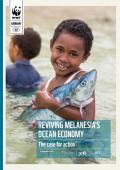
During the past few years, the term “Blue Economy” or “Blue Growth” has surged into common policy usage, all over the world. For some, Blue Economy means the use of the sea and its resources for sustainable economic development. For others, it simply refers to any economic activity in the maritime sector, whether sustainable or not.
Despite increasing high-level adoption of the Blue Economy as a concept and as a goal of policy making and investment, there is still no widely accepted definition of the term. To fill this gap in shared understanding about what characterises a sustainable Blue Economy, and to help ensure that the economic development of the ocean contributes to true prosperity, today and long into the future, WWF has developed a set of principles.
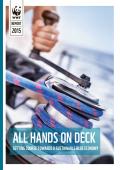
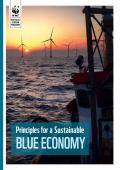
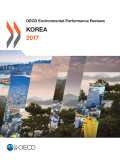
OECD Environmental Performance Reviews provide independent assessments of countries’ progress towards their environmental policy objectives. Reviews promote peer learning, enhance government accountability, and provide targeted recommendations aimed at improving environmental performance, individually and collectively. They are supported by a broad range of economic and environmental data, and evidence-based analysis. Each cycle of Environmental Performance Reviews covers all OECD countries and selected partner economies.
This report is the third Environmental Performance Review of Korea. It evaluates progress towards sustainable development and green growth, with a focus on waste and materials management, and environmental justice.
